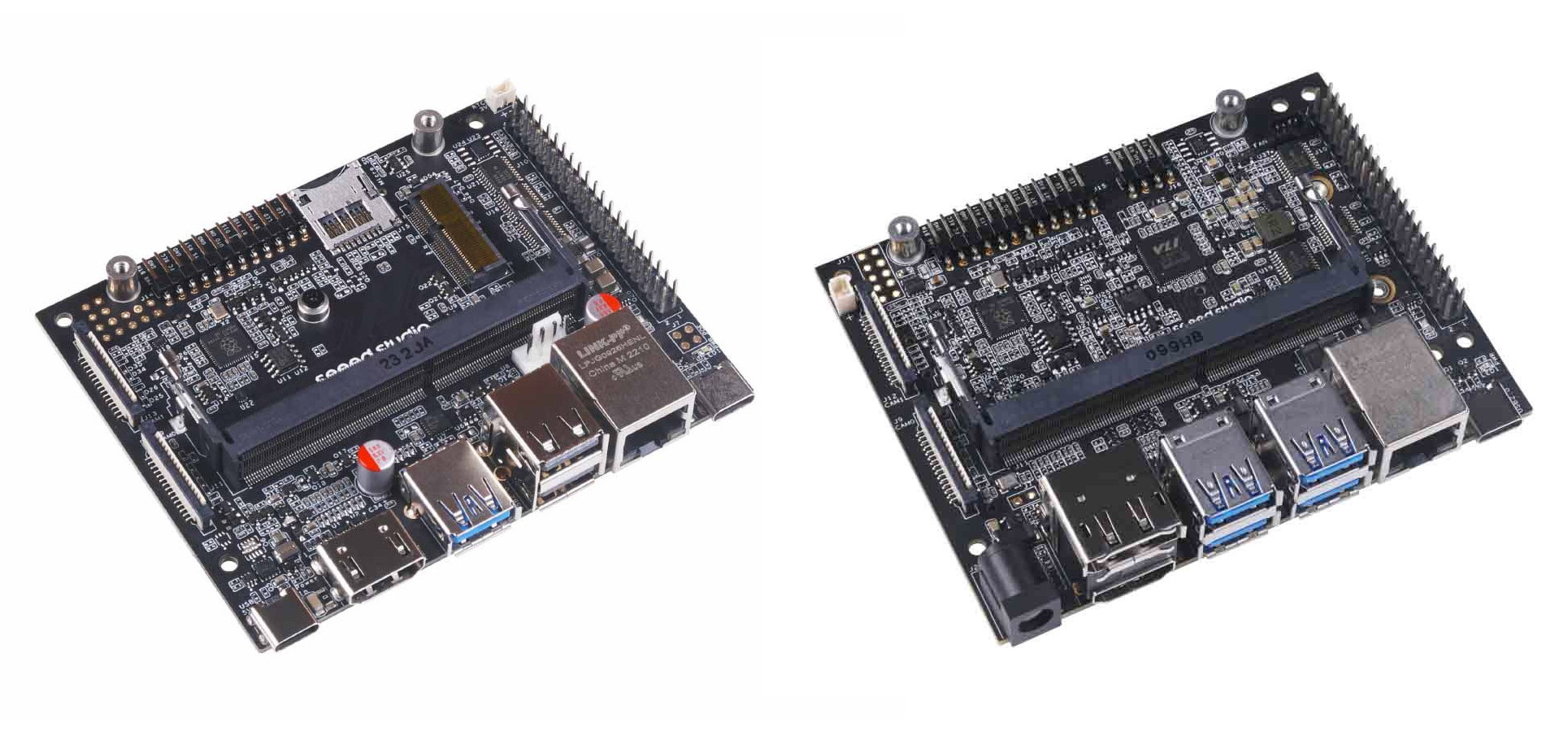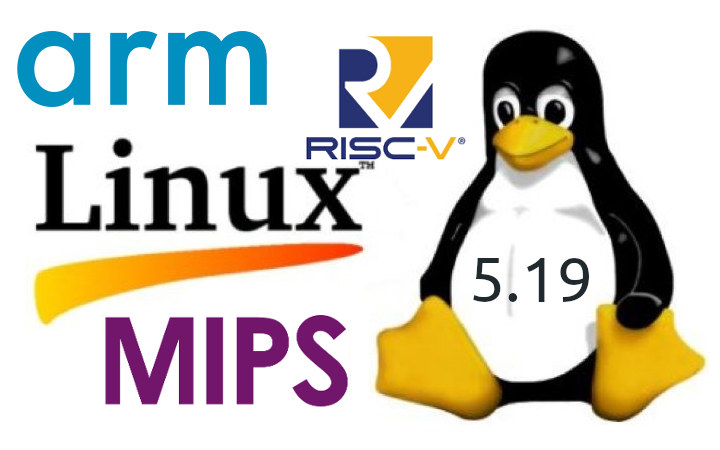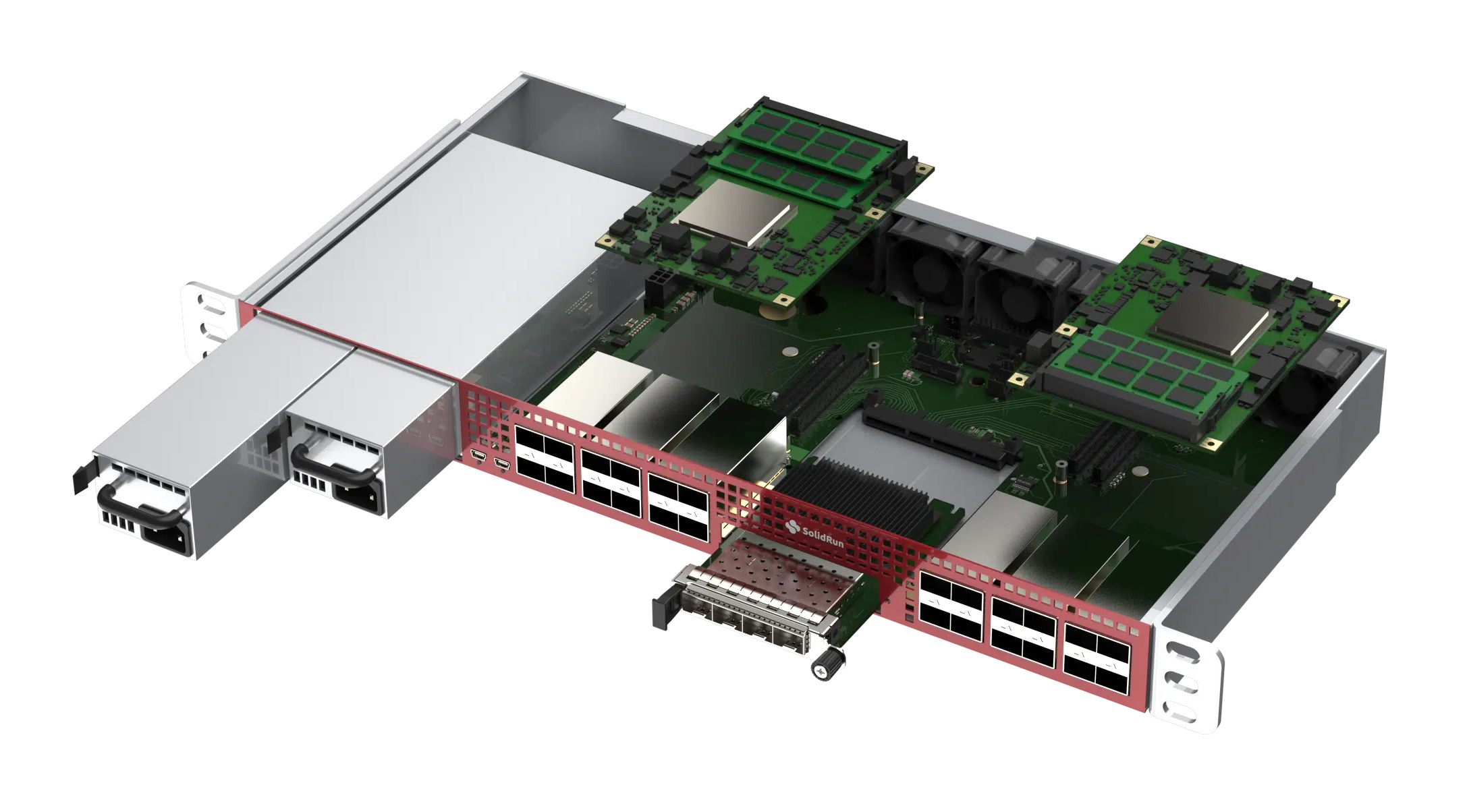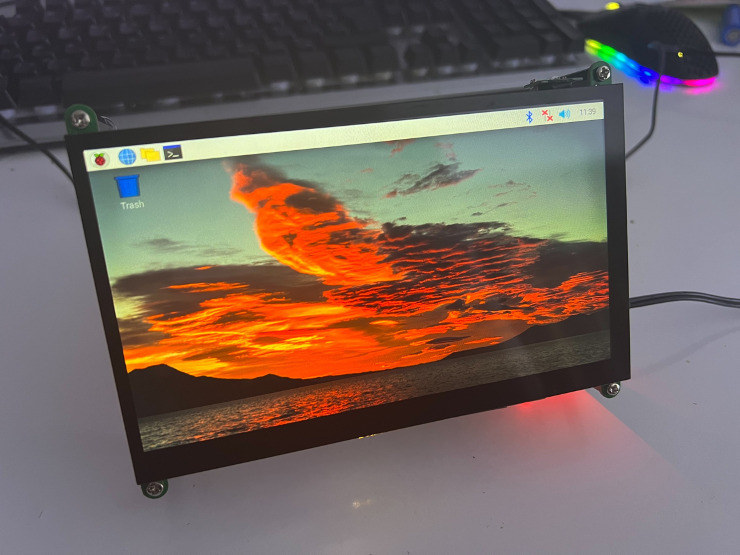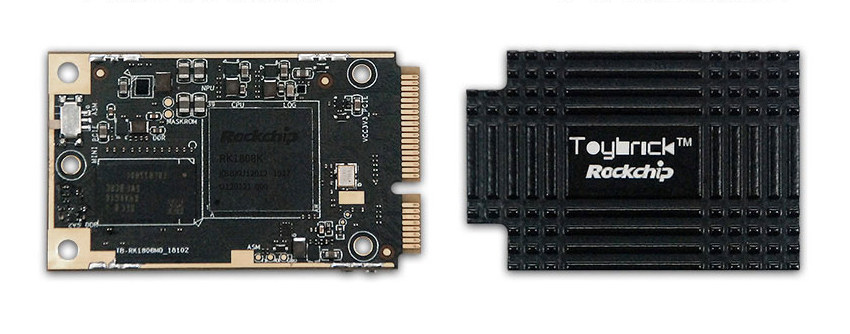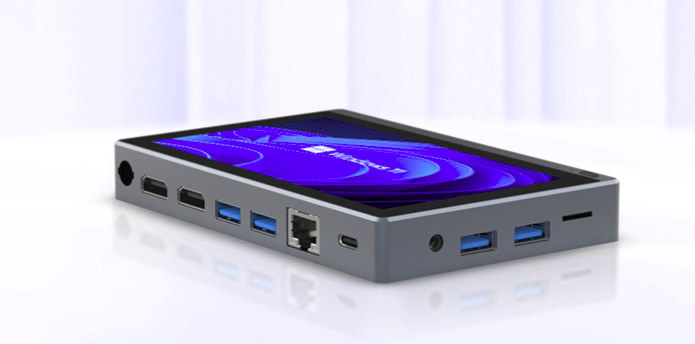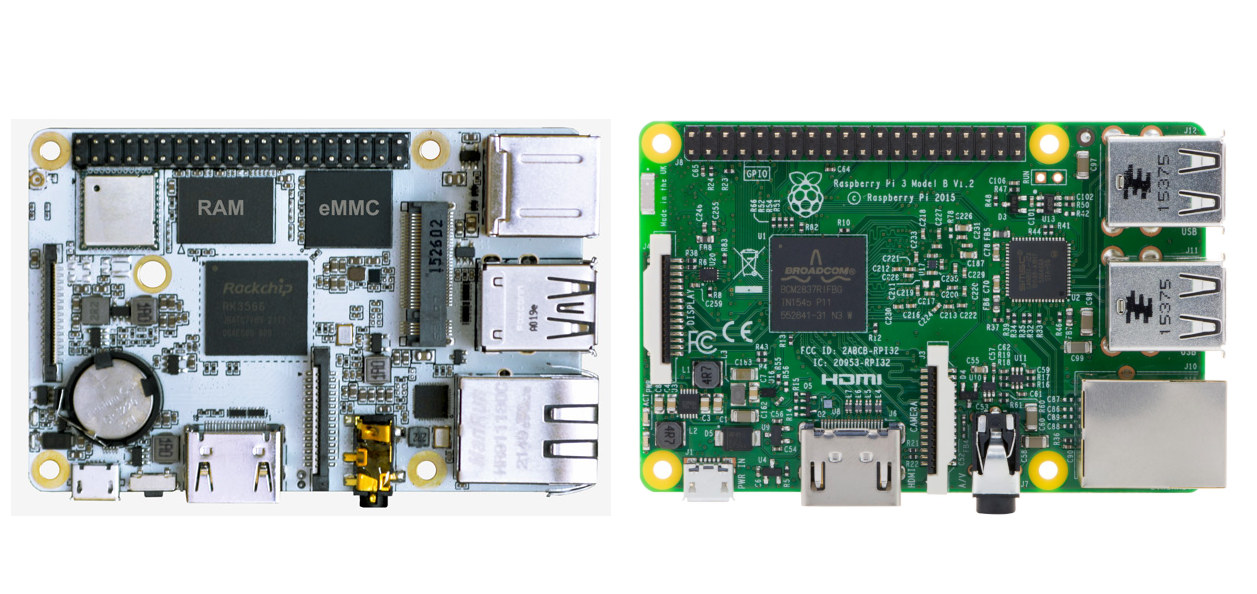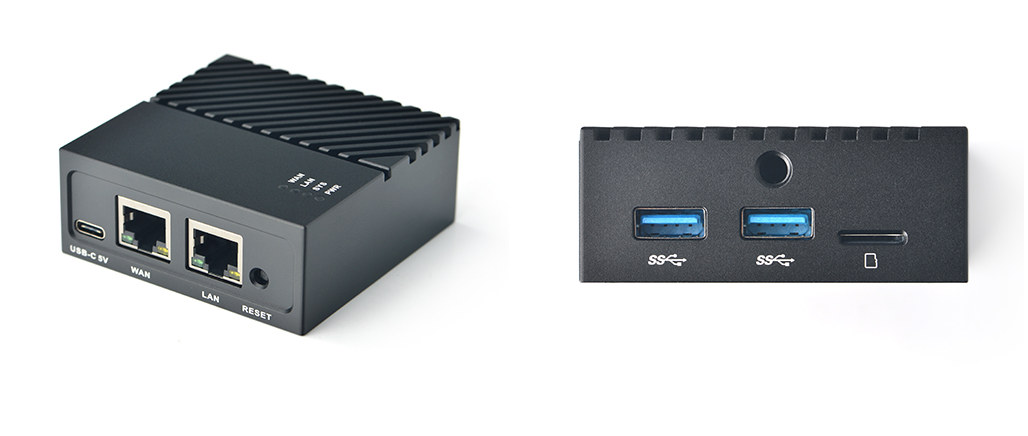Seeed Studio’s reComputer J101 & J202 are carrier boards with a similar form factor as the ones found in NVIDIA Jetson Nano and Jetson Xavier NX developer kits, but with a slightly different feature set. The reComputer J101 notably features different USB Type-A/Type-C ports, a microSD card, takes power from a USB Type-C port, and drops the DisplayPort connector, while the reComputer J201 board replaces the micro USB device port with a USB Type-C port, adds a CAN Bus interface, and switches to 12V power input instead of 19V. The table below summarizes the features and differences between the Jetson Nano devkit (B1), reComputer J101, Jetson Xavier NX devkit, and reComputer J202. Note the official Jetson board should also support production SoM with eMMC flash, but they do ship with a non-production SoM with a built-in MicroSD card socket instead. The carrier boards are so similar that if NVIDIA would […]
Linux 5.19 Release – Main changes, Arm, RISC-V and MIPS architectures
Linus Torvalds has just announced the release of Linux 5.19. It should be the last 5.xx version, with Linux 6.0 coming for the next cycle: So here we are, one week late, and 5.19 is tagged and pushed out. The full shortlog (just from rc8, obviously not all of 5.19) is below, but I can happily report that there is nothing really interesting in there. A lot of random small stuff. In the diffstat, the loongarch updates stand out, as does another batch of the networking sysctl READ_ONCE() annotations to make some of the data race checker code happy. Other than that it’s really just a mixed bag of various odds and ends. On a personal note, the most interesting part here is that I did the release (and am writing this) on an arm64 laptop. It’s something I’ve been waiting for for a _loong_ time, and it’s finally reality, […]
SolidRun introduces SolidWAN software-defined edge network hardware with NXP LX 16-core Cortex-A72 SoCs
SolidRun has launched two SolidWAN Linux-based system-level solutions for software-defined wide area networks and network security applications with the SolidWAN Single LX2162 based on NXP LX2162 16-core Cortex-A72 SoC designed for small offices (SoHo) and SMBs, and the SolidWAN Dual LX2160 equipped with two NXP LX2160A 16-core Cortex-A72 networking processors targetting enterprise and edge data center applications. SolidWAN Single LX2162 Hardware specifications: SoC – NXP Layerscape LX2162A 16-core Arm Cortex A72 processor @ up to 2GHz System Memory – Up to 32GB DDR4 Storage – 8GB eMMC flash, MicroSD card slot Networking 8x dedicated Gigabit Ethernet ports 2x SFP 10GbE cages 2x SFP 25GbE cages USB – 1x USB 3.0 port Expansion card I/Os Mini PCIe socket with SIM holder for 4G LTE cellular connectivity Mini PCIe socket for WiFi AP mPCIe module Management USB to STM32 for remote management RunBMC compliant socket Development and Debug interfaces – Mini USB, […]
Review of SunFounder TS7-Pro 7-inch touchscreen display for Raspberry Pi 4
Unboxing SunFounder TS7-Pro touchscreen display SunFounder TS7-Pro is a 7-inch touchscreen display designed for Raspberry Pi 4 board and the company sent us one review sample for evaluation. SunFounder has a wide range of Raspberry Pi and Arduino accessories designed for makers, and the TS7-Pro 7 is their latest offering that’s optimized to work with Raspberry Pi 4 and Raspberry Pi 3. Adding a touchscreen display to a Raspberry Pi may be a bit messy with the display or other accessories such as cameras and/or 2.5-inch drive spread on the table, but the TS7-Pro display simplifies all that with a neater assembly. Let’s start the review with an unboxing The package is compact and the display is well-protected with polyethylene foam to reduce the risk of damage during transport. Accessories such as cables, screws and nuts, adapters, an acrylic enclosure, and a screwdriver are also included in the package. Here’s […]
mini PCIe module features Rockchip RK1808K SoC with 3.0 TOPS NPU
Rockchip RK1808 SoC with a built-in 3.0 TOPS AI accelerator has been around since 2019, and we’ve seen it in USB compute sticks, SBCs, and even in Pine64 SoEdge-RK1808 SO-DIMM module, but somehow never in the more widely used M.2 or mPCIe form factors. Toybrick TB-RK1808M0 changes that and offers Rockchip RK1808K SoC coupled with 1GB RAM and an 8GB eMMC flash in a mini PCIe module that exposes USB 3.0, USB 2.0, UART, and GPIO signals. Toybrick TB-RK1808M0 specifications: SoC – Rockchip RK1808K CPU – Dual-core Cortex-A35 processor @ up to 1.4 GHz AI Accelerator – 3.0 TOPS NPU for INT8 inference (300 GOPS for INT16, 100 GFLOPS for FP16) VPU – 1080p60 H.264 decode, 1080p30 H.264 encode System Memory – 1GB DDR Storage – 8GB eMMC flash Host interface – Mini PCIe edge connector with USB 3.0, USB 2.0, UART, and GPIO Misc – Heatsink for cooling Supply […]
GOLE1 Pro mini PC comes with 5.5-inch touch screen display, Gemini Lake processor (Crowdfunding)
GOLE1 was quite a unique mini PC when it launched in 2016 as it included a 5-inch touchscreen display. HIGOLE is now back with the GOLE1 Pro based on a similar design, but a slightly larger 5.5-inch touchscreen display, and much better specs suitable for 2022’s software and entry-level use cases. The Atom x5-Z8300 “Cherry Trail” processor found in the original device gives way to an Intel Celeron N4200 or J4125 Gemini Lake processor, and the GOLE1 Pro mini PC, which the company sometimes also calls “HIGOLE PC 2022”, comes with up to 8GB LPDDR4X, a 128GB SSD, Gigabit Ethernet, WiFI 6 or 5, four USB 3.0 ports, and more. GOLE1 Pro specifications: SoC (one or the other) Intel Celeron J4125 quad-core processor @ 2.00 GHz / 2.70 GHz (Turbo) / 2.4 GHz (Turbo all cores) with 12EU Intel UHD Graphics 600 @ 250 MHz / 750 MHz (Turbo); 10W […]
Compact3566 – A Rockchip RK3566 SBC that closely follows Raspberry Pi 3 form factor
We’ve very recently written about Geniatech XPI-3566 SBC powered by Rockchip RK3566 CPU that somewhat follows the Raspberry Pi 3 Model B form factor. Boardcon Compact3566 offers similar features, but it appears to keep exactly the same port assignment as the Raspberry Pi SBC, so it should be compatible with more accessories. The Compact3566 SBC ships with up to 8GB LPDDR4 and 128GB eMMC flash, features Gigabit Ethernet & WiFi 5, four USB 3.0/2.0 ports, HDMI 2.0 output, MIPI DSI and CSI interfaces, the 40-pin GPIO header, as well as extra built-in features such as an M.2 socket for storage, RTC with battery, and a built-in microphone. Compact3566 specifications: SoC – Rockchip RK3566 quad-core Arm Cortex-A55 @ up to 1.8 GHz with ARM Mali-G52 2EE GPU with support for OpenGL ES 1.1/2.0/3.2. OpenCL 2.0. Vulkan 1.1, 0.8 TOPS NPU System Memory – 2GB, 4GB, or 8GB LPDDR4/LPDDR4X Storage 8GB, 16GB, […]
NanoPi R4SE dual Gigabit Ethernet router adds 32GB eMMC flash
NanoPi R4SE is a variant of the Rockchip RK3399-powered NanoPi R4S dual Gigabit Ethernet router that adds a 32GB eMMC flash instead of only relying on a microSD card for the operating system. Most of the specifications remain the same with dual GbE, two USB 3.0 ports, but the router is now only offered with 4GB LPDDR4 and there’s no option for only 1GB RAM, and the GPIO and USB 2.0 headers are gone. The listed temperature range also changed from -20°C to 70°C to 0°C to 80°C. NanoPi R4SE specifications: SoC – Rockchip RK3399 hexa-core processor with dual-Core Cortex-A72 up to 2.0 GHz, quad-core Cortex-A53 up to 1.5 GHz, Mali-T864 GPU with OpenGL ES1.1/2.0/3.0/3.1, OpenCL, DX11, and AFBC support, 4K VP9 and 4K 10-bit H265/H264 60fps video decoder System Memory – 4GB LPDDR4 Storage – 32GB eMMC flash, MicroSD card slot Networking – 2x GbE, including one native Gigabit […]


